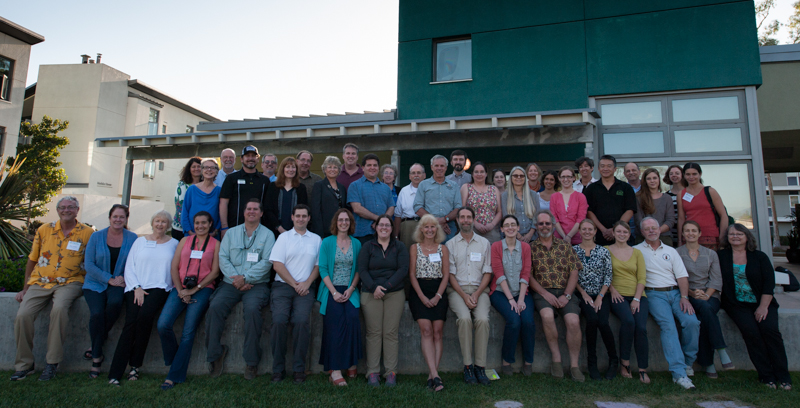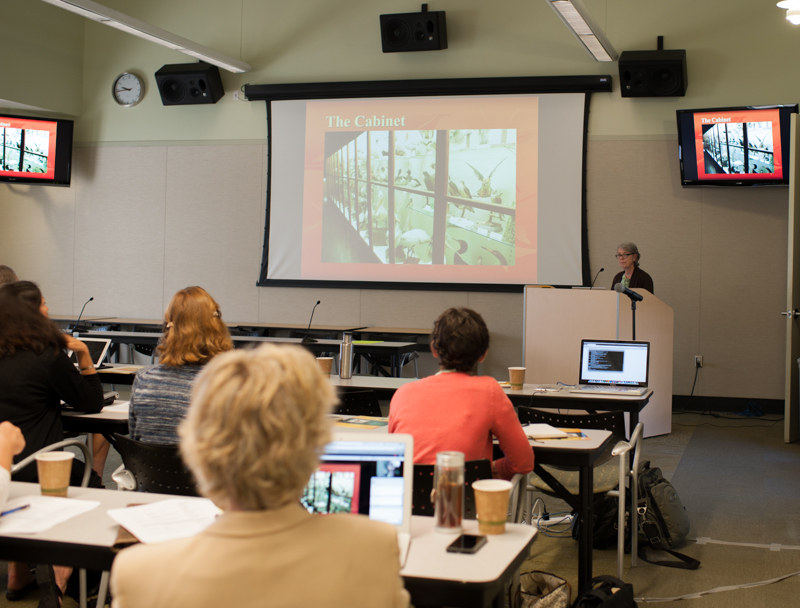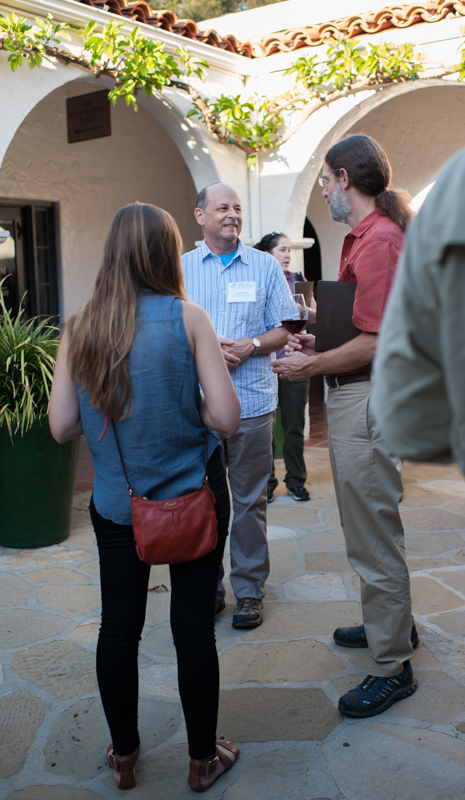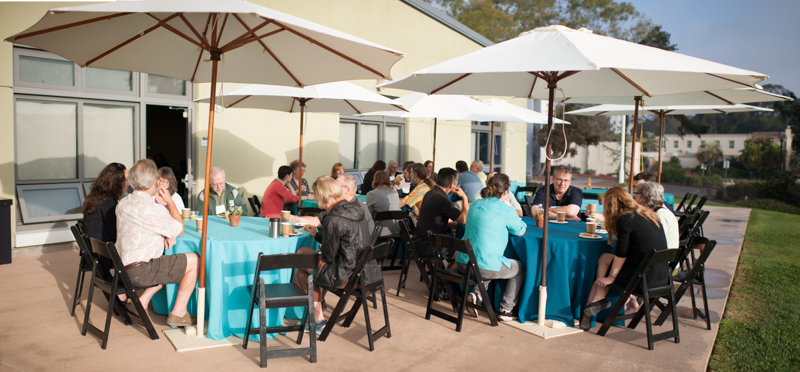
The University of California Santa Barbara (UCSB) turned out to be the perfect venue for iDigBio’s Leveraging Digitization Practices Across Multiple Domains workshop held the week of October 6 and co-sponsored by UCSB’s Cheadle Center for Biodiversity and Ecological Restoration (CCBER), the Santa Barbara Museum of Natural History (SBMNH), and the Western Foundation of Vertebrate Zoology (WFVZ). Fifty participants attended, representing more than 30 institutions that ranged from small and large natural history museums and academic institutions to biological field stations. The workshop planning team succeeded in its goal to attract scientists and collections professionals from all major prep types and disciplines, with a participant list that included representatives from wet and dry prep types in botany, entomology, vertebrate zoology, and paleontology, as well as biodiversity informatics.
 iDigBio recognizes and appreciates the time, commitment, and organizational prowess of Jennifer Thorsch, Laurie Hannah, and Mireia Beas-Moix of the Cheadle Center, Paul Valentich-Scott and Krista Fahy of SBMNH, and Linnea Hall and Rene Corado of WFVZ, without who’s help the workshop could not have been organized.
iDigBio recognizes and appreciates the time, commitment, and organizational prowess of Jennifer Thorsch, Laurie Hannah, and Mireia Beas-Moix of the Cheadle Center, Paul Valentich-Scott and Krista Fahy of SBMNH, and Linnea Hall and Rene Corado of WFVZ, without who’s help the workshop could not have been organized. 
Attendees were treated to a Monday evening reception at the Santa Barbara Museum of Natural History, complete with excellent locally produced hors d'oeuvres. Jennifer Thorsch and SBMNH research and collections director Henry Chaney Jr. welcomed the group and Paul Valentich-Scott and Krista Fahy led brief tours of SBMNH’s front of the house.
 The workshop was organized around several tracks that highlighted the major task clusters of digitization activity. The first day featured several overviews that introduced iDigBio and NSF's Advancing the Digitization of Biodiversity Collections program, discussed the newly established RCN that will guide the future of NIBA, the status of digitization practice within the collections community, and general principles of digitization workflows and processes. These were followed by sessions exploring the existing and future impact of public participation and citizen science in collections’ management. During the afternoon, participants pursued tours and visitations to CCBER, SBMNH, and WFVZ, with opportunities to observe the collections and review digitization practices, workstations, and procedures.
The workshop was organized around several tracks that highlighted the major task clusters of digitization activity. The first day featured several overviews that introduced iDigBio and NSF's Advancing the Digitization of Biodiversity Collections program, discussed the newly established RCN that will guide the future of NIBA, the status of digitization practice within the collections community, and general principles of digitization workflows and processes. These were followed by sessions exploring the existing and future impact of public participation and citizen science in collections’ management. During the afternoon, participants pursued tours and visitations to CCBER, SBMNH, and WFVZ, with opportunities to observe the collections and review digitization practices, workstations, and procedures.
Second-day sessions were somewhat more technical in nature and focused primarily on imaging processes, workflows, and standards in the morning, followed by an afternoon devoted to data standards, database considerations, data capture workflows across the domains represented at the workshop, and the use of digitized data in research. The planning team’s intent was to facilitate cross pollination and serendipitous discovery across collection types by highlighting a variety of digitization issues, strategies, resources, and protocols. Both days included extended panel-style question, answer, and discussion sessions to facilitate and enhance interaction among the participants. Discussion was rich and varied. 
The workshop was broadcast live and recorded via Adobe Connect. All recordings and PDF versions of the presentations as well as related materials and resources are archived and freely available on the workshop wiki at https://www.idigbio.org/wiki/index.php/Leveraging_Digitization. To ensure notification of future workshops, please subscribe to the IDIGBIODIGI-L listserv. Instructions are at iDigBio's listserv reference page.








